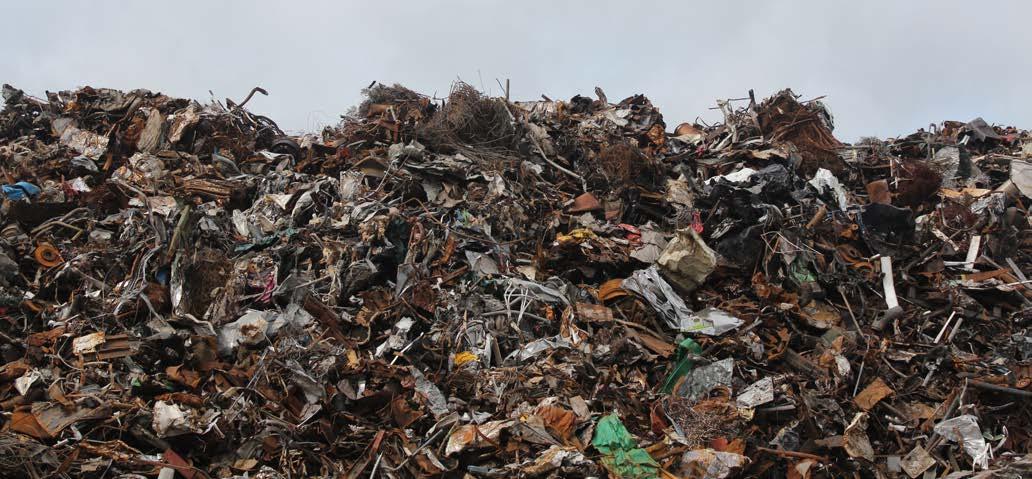
4 minute read
EVENT GREENING FORUM
Why we should take the leap into a wellbeing economy
On 15 April, the Event Greening Forum (EGF) and the SA Events Council (SAEC) held a joint webinar with guest speaker Professor Lorenzo Fioramonti. Prof Fioramonti is a distinguished economics academic at the University of Pretoria who believes that the learnings from academia should be applied to real life, to benefit humanity.
By Greg MacManus, chairperson of EGF.
Consequently, he has become a world-renowned proponent of the wellbeing economy and has entered politics to influence policy. He became a Member of Parliament in Italy in March 2018, which was followed by his appointment as Italy’s Minister of Education, University and Research in September 2019.
What is the wellbeing economy?
During his packed presentation, Prof Fioramonti explained that economic growth was initially pursued to improve the wellbeing of humanity. However, at some point we lost sight of this goal, and economic growth became the goal in and of itself. Paradoxically, a consequence of this is that our wellbeing is often sacrificed at the cost of short-term economic growth. And, he adds, sometimes this also jeopardises our long-term economic growth, as we tend to defer costs forward, even if it means they will increase.
One example he cited was that congested traffic is seen as an indicator of positive economic activity. However, heavy and slow-moving traffic is also associated with air pollution, and the World Health Organisation has estimated 4.2 million people die each year from poor quality air. Congestion also reduces the amount of time people are able to spend with their families, which may have other negative health and social impacts. These in turn have costs, while also reducing the quality of our lives.
And yet, globally, we have become obsessed with economic growth at the expense of all other considerations. It is how we measure the success of nations, and how developed or “advanced” a country is.
He continues, “What does it mean for a country to be doing ‘well’? My conclusion is that we are fundamentally confused.” He points out that the US is considered one of the most developed nations and yet it has low life expectancies, high levels of illiteracy, and high levels of lifestyleinduced diseases. Why should this be the model we are trying to emulate?

Taking the leap – the time is now
“The Covid pandemic has made clear that there is no economic success without social wellbeing, which is founded on the health of people and ecosystems. When we imperil wellbeing, we demolish any economic activity, resulting in more poverty and destitution,” he explains.
In proposing a shift to a wellbeing economy, the Professor instead invites us to put wellbeing first – both personal and environmental. It’s a model that aims to increase positive outcomes for all, and to decrease the negative ones. “It’s a banal but revolutionary idea,” he says.
Essentially this concept means shaping our worlds to promote healthy people and healthy environments, which support social cohesion and ultimately improve the quality of lives that we lead. He believes this approach requires that, instead of producing and consuming more, we produce and consume better. Overconsumption is often unfulfilling and drives the pollution of our natural world, to our detriment. Focusing on quality will lead to producing goods and services in a manner that our world is able to sustain, while still meeting our needs and supporting economies.
How could it be done?
Prof Fioramonti argues that our incentives are wrong. Companies do not take responsibility for their pollution, for example, so these costs are externalised. As taxpayers we carry the burden of cost to fix the problems that pollution may cause, and as humans we also often pay a cost with our health.
The Professor cited Mpumalanga, home to twelve coal-fired Eskom power plants, as having the poorest air quality in the world. This dirty air blows across Mpumalanga and Gauteng, where it is responsible for an estimated 2 000 deaths annually, according to Green Peace. We need our government to change the legislation so that businesses are forced to include their pollution outputs on their balance sheets so it is a cost they must shoulder. This, in turn, will motivate them to find cleaner alternatives.
Another way that Prof Fioramonti believes this shift may be encouraged is by the mandatory inclusion of sustainable development in school curricula, which was a piece of legislation he introduced in Italy on being appointed Minister of Education, University and Research. He believes that when children understand their impacts on the world, they become environmental ambassadors, take this knowledge home and influence their families. As a result, they have an immediate, positive impact on consumer behaviour.
To hear Prof Fioramonti’s full 30-minute talk, you may watch the webinar free of charge on the EGF website: eventgreening.co.za, by going to the ‘Resources’ tab and selecting ‘Webinar recordings’ in the drop down. [LINK: https://bit.ly/3uXCy9r]
To ensure that you don’t miss out on future webinars like this, you may also sign up to the EGF newsletters under the ‘Contact us’ tab. [LINK: https://bit. ly/3soigEp]
About the EGF
The Event Greening Forum (EGF) is a non-profit organisation that promotes sustainability within the business events sector. It does this by hosting educational sessions for industry and lobbying government in an effort to implement sustainability principles into the daily operations of the events industry. The EGF was established through dedication and support of eight industry associations who are recognised as founding members. The founding members are key industry associations working together to promote South Africa as a destination for various types of events.
Want to know more?
If you would like to know more about event greening, visit wwweventgreening.co.za where you can browse the free resources, sign up to the monthly newsletter, or contact them directly with any queries.
Contact: Lynn Mcleod
T: 082 891 5883 E: lynn@eventgreening.co.za










